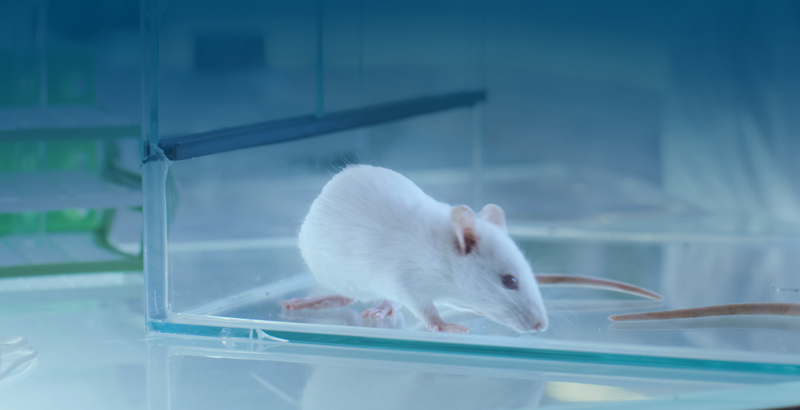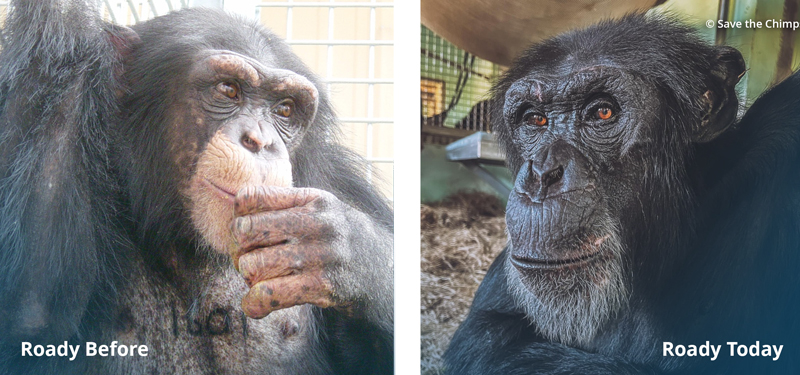| | | | | NEWS HIGHLIGHTS August 2024 |  Alternatives Research Has Potential to Improve and Save Lives One of the fastest growing and most exciting fields of science is non-animal alternatives, so AAVS is thrilled to share that our affiliate, the Alternatives Research & Development Foundation (ARDF), awarded an all-time high number of 10 research grants this year, totaling over $365,000. This funding will develop innovative methods to replace the use of animals in science. “The most important message from this year’s program is that alternative methods have truly arrived as an area of profound interest in biomedical research,” said Sue Leary, President of AAVS and ARDF. “The number of grant applications more than doubled.” Several of the research projects are investigating ailments that millions of Americans suffer from, and have great potential to improve daily lives. For example, researchers at Rush University Medical Center are developing a 3-D model using human cells to study osteoarthritis. At Michigan State University, human heart organoids will be used to develop a model for atrial fibrillation. Researchers at the University of Basel will continue to use their successful bladder model to study how urinary tract infections develop, while scientists at the University of Clermont Auvergne will use cells from migraine patients to study the cellular causes of headaches. Other funded projects are studying diseases with high mortality rates, like glioblastoma, an aggressive and difficult-to-treat form of brain cancer, pulmonary fibrosis, kidney transplant rejection, and pediatric acute lymphoblastic leukemia. A full list of ARDF grant recipients is available on ARDF’s website. This is an exciting time in alternatives development, and ARDF funding points the way to end the use the of animals in science! |
|  U.S. Pharmacopeia, the organization that sets standards for the drug industry, has issued an important approval: non-animal methods can now be used to test for toxins in pharmaceuticals instead of horseshoe crab blood. In 2022, approximately 912,000 horseshoe crabs were harvested for testing use in the U.S. Conservationists hope that declining reliance on the crabs will help restore their populations, as well as those of threatened bird species who depend on crab eggs for food.
READ MORE » |  The National Institutes of Health has awarded $31 million to fund centers developing organ-on-a-chip technology, which can produce data to facilitate drug development and testing that is more reliable than using animals. Made with living human cells, these chips are bioengineered 3-D models that mimic the function of real-life organs. Scientists will work with the Food and Drug Administration to ensure they meet regulatory requirements for drug development.
READ MORE » | | | |
| | SANCTUARY MOMENT: Save the Chimps |  Roady before arriving at STC and today In labs, primates are often referred to by an identification number that is tattooed on their chest. Roady is a chimpanzee who now happily resides at the Save the Chimps (STC) sanctuary in Florida, but he was known as number 1601 when he was owned by the Coulston Foundation primate testing and supply lab. As you can see in the photos, when Roady was first released from the lab and arrived at STC, his skin was pale and his identifying chest tattoo easily seen. Now, thanks to proper nutrition, sunshine, and an environment that allows him to just be a chimpanzee, Roady’s coat is thick and healthy, and his lab tattoo is no longer visible. Not much is known about Roady’s life at Coulston, except that he was loaned to other labs. When he first arrived at STC, he chose to stay inside; when he eventually did venture outside, he would stay close to his house, often clinging to the base of the building. Thankfully, the Save the Chimps caregivers never gave up on Roady and tried all kinds of enrichment to lure him outside to explore. Today, Roady has no fear and loves being outside to sit in the sun on his climbing platforms. He’s a happy, mellow boy, enjoying life to its fullest! STC is a longtime recipient of AAVS Sanctuary Fund grants, and they do a great job on social media, keeping us updated on everything that’s going on with the chimpanzees. Check them out!
LEARN MORE » | | | | | | |